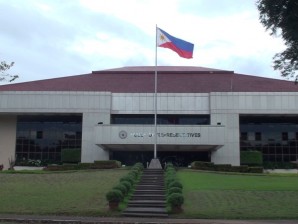MANILA, Philippines—Tired of politicians switching parties at the drop of a hat?
A bill seeking to punish “political turncoatism” has been passed on third and final reading in the House of Representatives. A related measure was earlier approved at the committee level at the Senate although some members had expressed reservations.
But to combat political turncoatism, House Bill No. 6551—An Act Strengthening the Political Party System—will require taxpayers to finance the operations of political parties under a proposed “state subsidy fund.”
Under the bill, accredited political parties could tap into the fund to cover items such as “traveling expenses of candidates and support personnel in the course of a campaign.” Production and distribution of election paraphernalia and other propaganda materials are also included on the list of “allowable expenditures.”
The bill defines political turncoatism as a “change of political party affiliation by an elected official during one’s term, except within six months prior to the end of the term.” But it would not cover an elected official who was “expelled in writing” from the party, so long as the case did not involve “political opportunism.”
Political opportunism is defined as “any act of a party member constituting disloyalty to the party or regular nonadherence to the party’s ideological principles, platform and programs, as determined by the party in accordance with its constitution and bylaws.”
Senators earlier tackled a similar bill, but Sen. Sergio Osmeña III dismissed the idea of penalizing political turncoats.
“Why are we preventing something that’s not a crime? You will penalize somebody for going from Liberal to Nacionalista? Why? I don’t understand that,” he told reporters last June. “Everybody will turn independent after that.”
In HB 6551, turncoats shall be “deemed to have forfeited their elective office, if they change their party affiliation, except within six months prior to elections.” They would also be “disqualified from running for any elective position in the succeeding election immediately following the act of changing party affiliation.”
The measure also bans them from “being appointed or from holding any position in any public or government office for three years after the expiration of the current term.” They would also have to “refund any and all amounts received from one’s former political party, along with a 25-percent surcharge.”
Accredited political parties will get 30 percent of the subsidy fund based on the number of seats they won in the “most recent general elections.” Those in the House will receive 65 percent, again depending on the number of seats.
